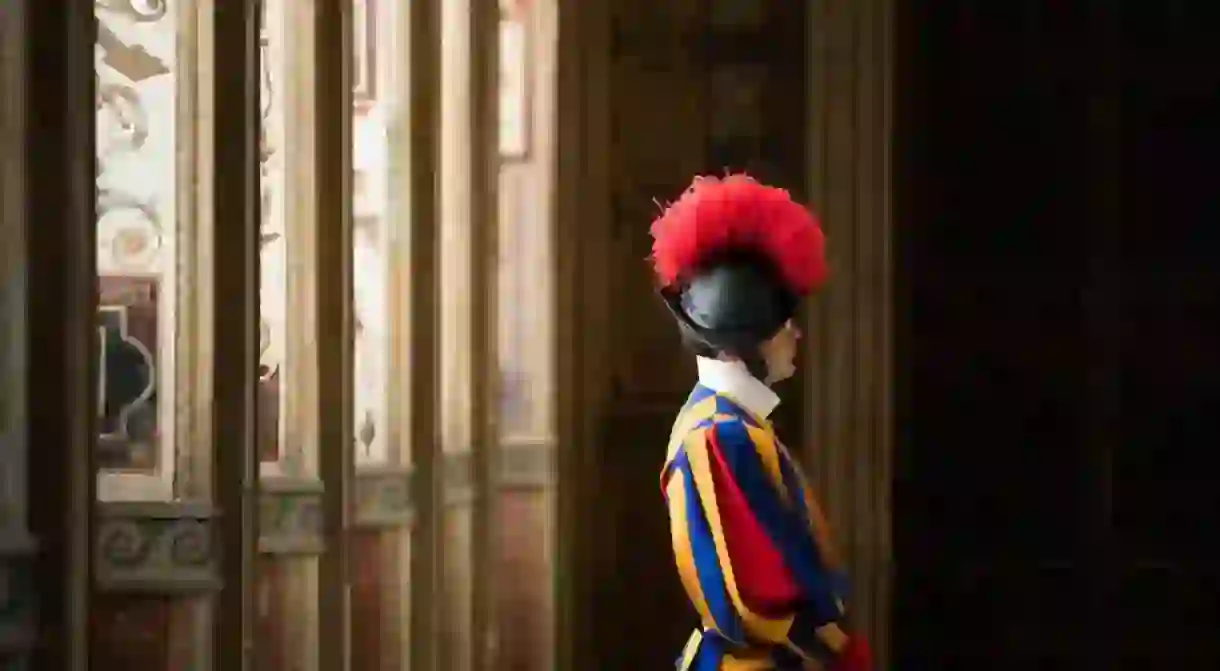Why Were the Swiss Guard So Popular?

If you’ve ever been to the Vatican, you’ve probably witnessed a group of frowny men armed with long spears and dressed as if they are heading to a psychedelic Cats recital. You weren’t tripping, those dudes were the Pontifical Swiss Guard and they are the Pope’s private army, loaned from Switzerland. The Pope isn’t the only head of state to make use of these disco-ready soldiers. Follow us on a quick history of the Swiss Guard and discover why they were so popular, their kick-ass style aside.
Need some defending? Call the Swiss
The Swiss have been helping other nations fight their wars and defend their royalty for centuries. This tradition stretches all the way back to the Middle Ages. Back then, the Swiss, or the Helvetians as they were known, were renowned for their trustworthiness and loyalty but they were also respected and downright feared as a military force. Their reputation was akin to that of the Spartans and nobody wanted to come up against even one regiment of them.
Machiavelli, the mouthpiece for Renaissance military strategy, urges rulers in The Prince to pack the centre of their armies with Swiss mercenary pikemen. To not do so, he says, is asking for defeat.
These battle-hardened Swiss were so in demand that they were loaned out by Swiss Cantonal authorities to interested parties. It was Louis XI of France who first took on a cohort of Swiss to defend himself, nicknamed the ‘Hundred Swiss’, kicking off a tradition that lasted until 1792.

Over time, however, the Swiss mercenaries lost their shine as changes in military strategy and the age of gunpowder lessened their effectiveness, but despite this, they were still hired en masse by some forces. In 1740, around 12,000 Swiss mercenaries were serving the French; fifty years later there were around 13,000 Swiss serving the Spanish army.
When the revolution rocked the city of Paris in 1792, it was the Swiss who stayed to defend Louis XVI. Many of the Swiss Guard were true to their century-old reputation and stood by their employer and were duly slaughtered for their loyalty. Years later, a memorial to this fateful day was constructed outside the city of Lucerne; it depicts a mortally wounded lion in its final, agonizing moments of life.

When Switzerland became the neutral state we know today, with the signing of the Federal Constitution in 1848, foreign military service still occurred, but at a much lower rate. The Swiss Guard and mercenary service was finally outlawed by the Swiss in 1874, with the sole exception of the Pontifical Swiss Guard (the disco-dudes from earlier). They continue to serve the Papacy, bedazzling all with their flamboyant dress, and, perhaps, the historic tradition that they represent.













